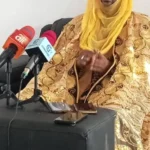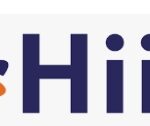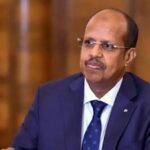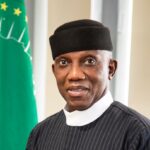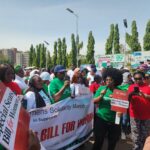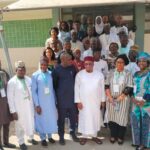International Week of the Deaf: How Nigerian Sign Language Interpreters help children dispel fear of Coronavirus
By News Agency of Nigeria (NAN)
In Nigeria, over 27 million people are estimated to live with various disabilities.
While physical disability tops the chart with 27.09% of this number according to a Shelby Treat Report (2016), Deafness/Hearing Loss is the second largest form of disability in Nigeria with 23.76% an estimated 6.4 million people.
It is even more worrisome as studies show that 75 per cent of deaf children and young adults were not genetically born deaf but health complications, lack of good medical care, ignorance and poverty have often contributed to the challenge.
The Nigerian Deaf Community and Struggle with Communication
A major recurring problem in the integration and empowerment of the deaf in Nigeria is communication; ease of communication with their hearing families, seamless communication in schools to muster understanding of all subjects and communication with the wider hearing population for day-to-day activities.
Lack of seamless communication and understanding between the deaf and hearing community have often resulted in a high number of illiteracy and poverty of deaf people, who though hearing impaired, can adapt, learn conveniently and soar to the highest level with Sign Language.
As the world tackles Coronavirus (COVID-19), proffering solutions to contain the virus, which is well into its third wave, communication has remained key in disseminating information to countries and their populations, deaf communities inclusive. But this is not always easy for deaf communities because of their peculiar communication needs.
How Nigerian Deaf Signers Were Introduced to the World-Class Children’s Book “My Hero is You”
Making a Difference with a Book
A team of deaf signers across Nigeria was assembled by Dr Emmanuel Asonye, a linguistic scholar from the University of New Mexico, USA, to translate into indigenous Nigerian sign language, the internationally acclaimed book “My Hero is You” which helps children, their parents and care-givers understand and answer questions on Coronavirus.
“My Hero is You” is supported by the United Nations Children’s Fund and other global, regional, and country-based experts including parents, caregivers, teachers, and children in 104 countries.
Deaf signers say the project is particularly helpful to the Nigerian deaf community who before now had struggled to get an indigenous sign language.
With the signing of this book into an indigenous Nigerian Sign Language, deaf signers can now reach out to their communities. They teach them in the sign language they understand, using local words to explain how the virus came to be and how to prevent its spread and protect their communities.
Particularly, the book is helpful to deaf children in communities that find it difficult to communicate with their hearing families before they can access formal deaf schools. These children are worst hit with information deficiency during the coronavirus pandemic.
Dr Emmanuel Asonye, whose work with deaf communities in Nigeria spans seven years as the Chief Executive Officer and Co-Founder of Save the Deaf and Endangered Languages Initiative (S-DELI), says indigenous signing of the book could not have come at a better time as the bulk of words in the vocabulary taught to Nigeria’s Deaf Community are of foreign content.
“There is a conflict of language variety that the deaf children are being taught in this country. We found that out in the deaf schools where we have worked, the variety of sign language taught is the one regarded as American Sign Language.
“Technically, we will say it is not American Sign Language but the issue is, it is a variety of language that is considered foreign, it is not indigenous, it is not local per say.
“For example, the deaf learners are conversant with foreign seasons such as winter and summer; they know words such as ‘snow’ which are not in their environment but are yet to have an indigenous sign for words of local fruits and nuts like ‘tigernut’ so they finger-spell,” Asonye said.
Using the model of American Sign Language and fingerspelling to teach in Nigerian schools has limited understanding and wasted years of knowledge, Asonye notes.
Impact of Signing “My Hero is You” in an Indigenous Nigerian Sign Language
Mr Joshua Gyang, a deaf signer and official of the Federal College of Education, Jos was born a hearing child but became deaf at the age of 6 after he suffered from mumps while in Primary 2.
He says having an indigenous sign language for the book will greatly spur Nigeria’s deaf community to focus on using locally sourced signing for learning, to ease communication and understanding.
“This project has exposed us to the life of the deaf, how it is and how the future will look like.
“It opens ways to help other deaf people in rural communities to appreciate their language and to use it more and to open new ways for them because right now we don’t have proper ways to help the deaf people but through this project, it will create a better way and good future for the deaf community in Nigeria.”
Mrs Nkiru Lovina Edem, who also became deaf at the age of 5 due to a wrong malaria injection, says the awful experience of being enrolled in a hearing school while deaf, will spur her to spread the coronavirus message of “My Hero is You” to young deaf children and their families.
“I didn’t grow up in a family that understands sign language, so communication was always a problem. Even in school, we didn’t have sign language interpreters to interpret what the hearing teacher taught; I attended a hearing school.
“When I could not cope in that hearing school, I was transferred to a deaf school where we had deaf teachers that taught us in American Sign Language.
“I will teach my students the indigenous sign language at a young age so that they will grow up with it because American Sign Language is not superior to our indigenous sign language,” she said.
Mr Ifeanyi Umah, another deaf signer and master’s degree holder in Special Education, who became deaf at 15, reiterates the importance of having an indigenous signed book for coronavirus for the deaf community.
“We need to understand that this indigenous sign language is very important for communication. Signing “My hero is You” has been interesting all the way.
“Parents give more attention to hearing children than deaf children because they believe that the hearing children will become more successful than the deaf child in the family.
“So having a book signed particularly for the deaf, in an indigenous language, telling them how strong they are and how they can help each other is powerful,” Umah said.
Similarly, Mr Festus Zenda, a news reporter and pastor who lost his hearing at age 13, said his message, which is mainly for the deaf, now incorporates how families and caregivers can understand and cope with COVID-19.
“It has impacted my life in a positive way; I am involved in this project. I am part of something that will bring positive change to my deaf community so I can easily say that I am a changemaker.
“I hope that at the end of the day, our identity as deaf will come back because for many years now, we have been copying foreign sign language. But now, we are going to start using our own which identifies us as a community.
“It will give us respect, so I am proud that I am using my own indigenous sign language to communicate to my other deaf brothers and sisters.”
Challenges of Developing an Indigenous Sign Language
Coming together from all zones of the country to ensure an indigenous signing of “My Hero is You” did not come without its challenges, the signers said.
Before assembling in Abuja to compare notes and synergise, the signers worked individually and collectively, exchanging, and comparing notes and short videos via mobile phones and laptops to achieve indigenous signs for words in the book.
Mr Festus Zenda lists poor electricity supply to power their work tools, blackouts during video sessions and poor internet service in their domain, as major impediments to gathering materials for indigenous translations.
In spite of these obstacles, the signers took the bull by the horn, using indigenous Nigerian words to translate the contents of the book “My Hero is You” so that young deaf people, their parents, caregivers and Nigerian hearing families and communities can also benefit from the message it contains.
Now they move from school to school and in deaf communities spreading the message of social distancing, tackling fear, proffering protective and preventive strategies as stipulated by the Nigerian public health institutions and the World Health Organisation to guide deaf children, their parents, and caregivers to stop the spread of the virus.
Translating this book is only the beginning of building an indigenous vocabulary of Sign Language for formal use in Nigeria.
***If used, please credit the writer and the News Agency of Nigeria (NAN).
This story is supported by Solutions Journalism and Nigeria Health Watch

